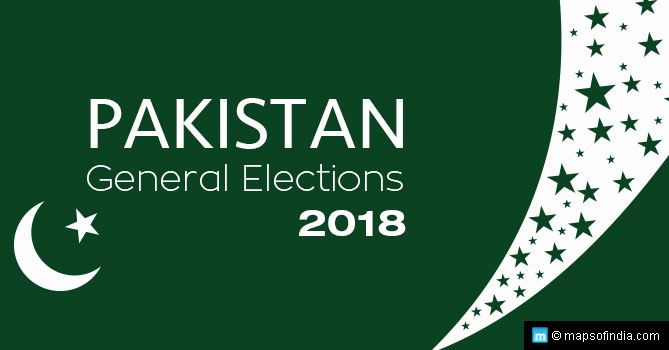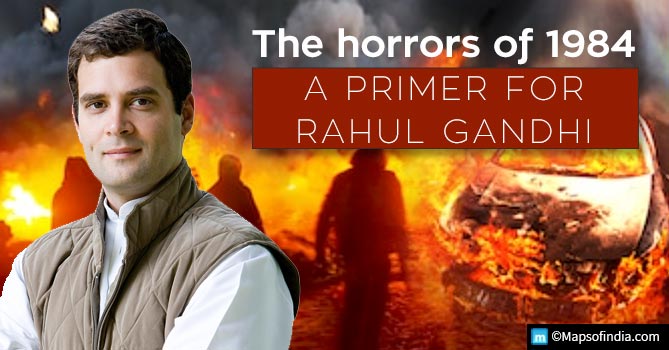India and Pakistan gained independence more or less at the same time with a difference . Both the neighbouring countries have had a different electoral history, there has been a stark contrast. India’s electoral history has been occasionally marred by controversy, while Pakistan’s electoral history has been time and again halted by the military coups that destabilised the democratic institutions within the country. Pakistan is heading for parliamentary elections on 25th July, with former Pakistan cricket World Cup winning captain Imran Khan up against Shahbaz Sharif, brother of former tainted Prime Minister Nawaz Sharif. However, the scenario for improvement in Indo-Pak relations looks bleak if Imran Khan is to become the next Prime Minister. He has come out with strong rhetorics against India and its government. India would be hoping for Shahbaz Sharif to be the next PM of Pakistan, as India has shared better relations during the tenure of his brother and would be hoping to continue the same with Shahbaz.
Pakistan elections 2018- Overview
The Pakistan General elections 2018, is the second time in the 70 years of the country that there will be a successive democratic transition taking place. The country has often fallen prey to the ambitious and authoritarian military dictatorships time and again, who have staged coups for their vested interests. The elections were initiated after the end of tenure at the office of Prime Minister’s on 31 May. The country of Pakistan is divided into 342 national assembly seats with more than 3400 candidates vying for the 274 national assembly seats, while 60 seats have been reserved for the women representation and religious minorities in the country vying for the remaining 10 seats.
Party’s involved
Former Pakistan Cricket Team Captain Imran Khan is leading the Pakistan Tehreek-e-Insaf (PTI) in the General elections. The cricketer-turned-politician is considered to be the strongest contender, with Pakistani army supposedly backing Imran Khan as the leader of Pakistan in the coming future. He led anti-corruption protests against tainted former Prime Minister Nawaz Sharif. Imran Khan’s PTI faces tough opposition from Pakistan Muslim League-Nawaz (PMLN), which being spearheaded by former Prime Minister’s brother Shahbaz Sharif. Nawaz Sharif was disqualified from holding any public office after his name surfaced on the Panama Papers, that revealed offshore business investment of his family. Shahbaz Sharif who leads PMLN, is understood to share a cordial relation with the Pakistan army than his brother, who along with his daughter were arrested last month to ensure that they do not get involved in the election processes. The third party that is trying to revive itself in the Pakistan General elections is Pakistan’s People’s Party, currently led by Bilawal Bhutto, son of former Prime Minister Benazir Bhutto. The party’s image was dented after the death of Benazir Bhutto, as during Asif Ali Zardari leadership, the party lost its credibility among its supporters.
Implications on India
New Delhi will be following the Pakistan’s General elections with a hawk-eye view, as the election developments can be a make or break situation for the ties between two countries. The newly elected government in Pakistan can prove to steady the sinking ship of Indo-Pak ties. It could prove to be the beginning of a new era between both the nations, after 70-years of unrest that led to several thousand civilians and military personnel losing their lives on both sides. Pakistan has often been branded as a safe haven for terror outfits and insurgents planning to disrupt peace in the valley and other parts of India. Pakistan’s intelligence agency ISI and Pakistan army have time and again been accused of providing safe shelter and breeding space for anti-India elements. The bilateral relations between both the countries have gone hot and cold on several occasions, from being involved in direct wars and ceasefire violations to sharing moments of warm and cordial relations. The frequent terror attacks on Indian soil and cross-border ceasefire violations often seen as supported and funded by Pakistan have proved to be a roadblock in the bilateral relations. Since 2013, the bilateral dialogues have been cold between both the countries. Although, Indian Prime Minister Narendra Modi paid a surprise visit to Pakistan during his counterpart Nawaz Sharif’s birthday in 2015, but situations have not improved much. Much of Pakistan’s foreign policy dealing with India is governed by Pakistani military, which is said to favour Imran Khan’s PTI and other Islamist parties. Several analysts feel that Imran Khan’s PTI would likely be guided by the army that may work as the hidden hand. Whosoever, emerges as the winner, Indian and Pakistanis would be hoping that the new Pakistan government can work cohesively with the Indian government. Both the countries have suffered heavily over the last 70 years due to rivalry, and if there is to be peace in the region, than India along with the world would be hoping for beginning of a new chapter in the history of both the countries.






